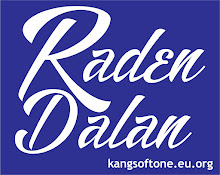Introduction
In the evolving landscape of higher education, the assessment of student learning has taken center stage as institutions strive to create more comprehensive and meaningful learning experiences. Holistic approaches to student assessment have emerged as a response to the need for a more nuanced understanding of a student’s capabilities, beyond traditional measures like exams and grades.
Understanding Holistic Assessment
Holistic assessment is grounded in the belief that student learning is a multifaceted journey that goes beyond the ability to memorize facts or perform well on standardized tests. It encompasses a broader perspective, considering not only cognitive skills but also emotional intelligence, critical thinking, creativity, and real-world application of knowledge.
Diverse Assessment Methods
In contrast to relying solely on exams, holistic assessment integrates a variety of evaluation methods. These can include project-based assessments, portfolios, presentations, collaborative assignments, and even self-assessment. By embracing diverse approaches, educators gain a more comprehensive view of a student’s abilities, fostering a more accurate representation of their overall development.
Promoting Real-World Application
Holistic assessment strives to bridge the gap between academia and the real world. Assignments that simulate professional scenarios, internships, and community engagement projects become integral components of holistic assessment. This not only prepares students for life beyond the classroom but also reinforces the practical application of their acquired knowledge.
Emphasizing Continuous Feedback
Rather than a singular focus on end-of-semester exams, holistic assessment encourages continuous feedback. Regular check-ins, formative assessments, and ongoing dialogue between students and educators foster a dynamic learning environment. This iterative process allows students to understand their strengths, address weaknesses, and actively engage in their educational journey.
Cultivating Soft Skills
Holistic assessment acknowledges the significance of soft skills, such as communication, teamwork, adaptability, and leadership. Group projects, presentations, and collaborative assignments become essential components of holistic assessment, reflecting the understanding that success in the professional world requires more than academic proficiency.
Individualized Learning Paths
Recognizing that each student is unique, holistic assessment supports individualized learning paths. Tailored assignments, personalized projects, and flexible assessment methods allow educators to cater to diverse learning styles and help students develop their strengths while addressing areas that need improvement.
Challenges and Considerations
Implementing holistic assessment comes with its challenges, including the need for additional resources, faculty training, and a shift in institutional mindset. However, the potential benefits in terms of a more accurate representation of student capabilities and enhanced student engagement outweigh these challenges.
Conclusion
Holistic approaches to student assessment in higher education represent a paradigm shift towards a more comprehensive understanding of student learning. By embracing diverse assessment methods, promoting real-world application, providing continuous feedback, and cultivating soft skills, educators can contribute to the holistic development of students. As higher education evolves, holistic assessment becomes a cornerstone in preparing students not just for academic success but for the complex challenges of the ever-changing world beyond the classroom.
 KangSoftone Berita Informasi Terlengkap & Terbaru
KangSoftone Berita Informasi Terlengkap & Terbaru